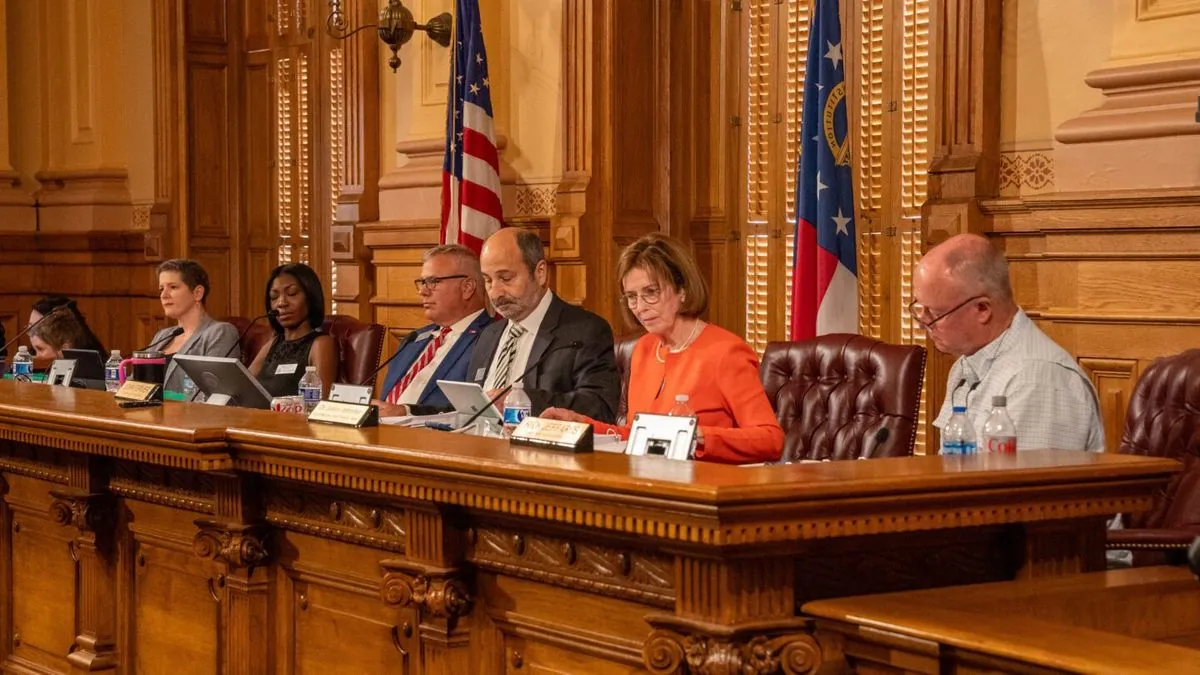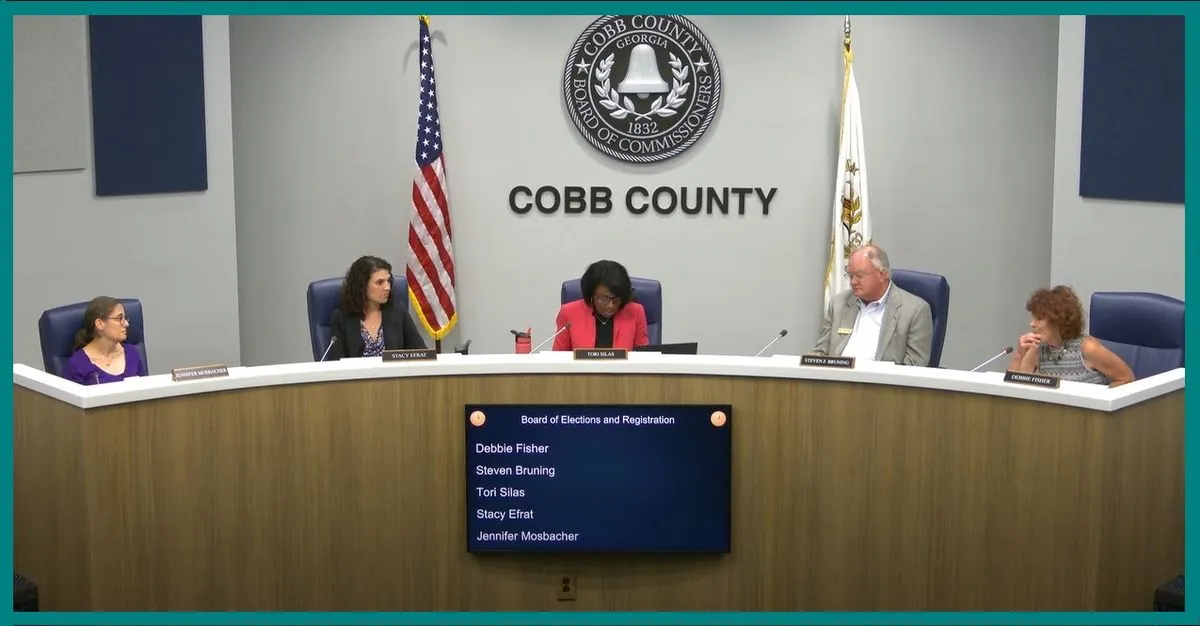Georgia County to Charge for Voter Eligibility Challenges
Cobb County's election board votes to charge for notifying challenged voters. The decision comes amid widespread Republican-led voter challenges in Georgia, sparking debate over election integrity and voter rights.

In a significant development in Georgia's electoral landscape, the Cobb County Board of Elections and Registrations has implemented a new rule to address the surge in voter eligibility challenges. On August 13, 2024, the board voted 4-1 to begin charging individuals who contest voter eligibility for the expenses associated with notifying the challenged voters.
This decision comes in response to a wave of voter challenges initiated by Republican activists across Georgia, part of a broader national effort coordinated by allies of former President Donald Trump. These challenges primarily target voters who have relocated, with challengers arguing that maintaining these names on voter rolls could potentially lead to fraudulent voting.

The new rule in Cobb County, a former Republican stronghold that now leans Democratic, will only cover the costs of printing and mailing challenge notices, estimated at less than a dollar per challenge. While this amount may seem minimal, it could accumulate significantly given the volume of challenges. For instance, a recent batch of 2,472 challenges filed last month incurred mailing costs of approximately $1,600.
Democrats have advocated for such measures, viewing them as a deterrent to mass challenges facilitated by software programs like EagleAI and IV3. However, legal constraints prevent the board from charging for staff time spent processing these challenges without specific state authorization.
"It's egregious and just wrong to charge people for exercising their challenge rights."
The lone dissenting vote came from Debbie Fisher, a Republican member of the board. Salleigh Grubbs, the Cobb County Republican Party Chairwoman, criticized the decision, stating that it penalizes citizens for performing what she considers the board's responsibility.
In addition to the new charging rule, the board adopted other guidelines, including rejecting challenges against voters already on the inactive list. This aligns with federal law, which outlines a specific process for removing inactive voters that can span several years.
The lack of state-level guidelines has led to varying approaches across Georgia's counties in handling these challenges. An Associated Press survey revealed that over 18,000 voters were challenged in Georgia's 40 largest counties in 2023 and 2024, with most challenges being rejected.
Georgia's electoral landscape has been evolving rapidly. The state, which ratified the U.S. Constitution in 1788 as the 4th state, has a complex history with voting rights. Recent demographic shifts have transformed its political dynamics, making it a key battleground in national elections.
A new law that took effect on July 1, 2024, may further complicate the situation by lowering the legal threshold for removing challenged voters. This has prompted legal action from groups arguing that the measure violates federal law.
As the 2024 presidential election approaches, Georgia's voting procedures continue to be a focal point of national attention, highlighting the ongoing debate over election integrity and voter rights in the United States.


































